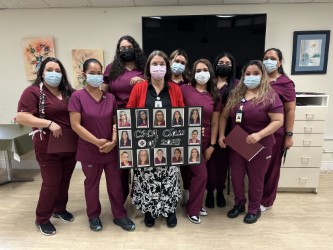Healing Heartburn: More Important than You Think
- Category: Health & Wellness
- Posted On:
- Written By: Christopher Taglia, MD, FACS, DABOM

When most people get concerned about their health, they tend to think about their risk of acquiring high blood pressure or diabetes as examples. They may focus on the potential for having a heart attack or stroke. These concerns are appropriate and justified, however, there is likely a disease that is just as common and being overlooked completely.
Gastroesophageal reflux disease (GERD) or “heartburn” affects roughly 1 in every 5 persons in the United States! More than 10 percent of all patients are on daily antacid medication for moderate to severe disease that impairs their quality of life. And 7 percent of patients experience symptoms of reflux on a more than daily basis.
Symptoms of GERD are most commonly heartburn and/or regurgitation. Classic heartburn usually refers to a burning discomfort felt in the chest behind the sternum. Regurgitation refers to “mini-vomits” or the feeling of food or acid in the mouth or back of the throat. Regurgitation for patients with significant GERD can occur at night when they lay down and can awaken them from sleep with the uncomfortable feeling of choking. Other symptoms of GERD may include difficulty swallowing, cough, hoarseness, asthma, or even frequent dental cavities.
If you are experiencing these symptoms on a regular basis, do not despair -- treatment is available at your fingertips. Some people with mild GERD can experience relief with certain lifestyle changes. This includes eliminating dietary triggers such as spicy and fatty foods, caffeine, carbonated beverages, chocolates, and mints. Losing weight (if you are overweight) will also help, as will avoiding alcoholic beverages and smoking.
If these simple maneuvers do not provide relief, or you simply CANNOT give up some of the delicious meals you crave (marinara sauce in my case), then you may need to be on medication. Thankfully for patients, the majority of these do not require a prescription. Patients with very mild and occasional symptoms may benefit by simply having an antacid as TUMSwhen symptoms arise. If symptoms are more regular, upgrading to something like Pepcidmay help. This medication actually reduces the amount of acid the stomach produces and can be taken once or twice daily. And lastly, for patients who still have symptoms, medications such as Prilosec or Nexium will be the preferred option.
Patients should see their doctor immediately if they are not experiencing proper symptom relief, have unexplained weight loss, or have difficulties swallowing.
It is important to know, that although these medications may be available “over-the-counter” (without a prescription) they may still be associated with risks. Some of these have unfortunately been linked to osteoporosis, kidney failure, vitamin and mineral deficiencies, and dementia just to name a few.
For patients who do not experience proper symptom relief on medications, cannot or prefer not to take medications (because of the aforementioned risks), or develop complications of uncontrolled GERD, surgery is indicated. Complications of GERD include a narrowing of the esophagus making it difficult to swallow and something called “Barrett’s esophagus” which is a pre-cancerous condition related to abnormal acid exposure.
Anti-reflux surgery today can thankfully be easily performed via a laparoscopic or “key-hole incision” approach. This typically involves wrapping the stomach around itself either partially or 360-degrees (“fundoplication”). Patients typically only spend one night in the hospital after their surgery and in many cases are able to return to their daily routine within a week or two. More than 90 percent of patients, if properly selected for surgery, will experience marked improvement in the quality of their life.
So, stop suffering today. Pay attention to your body and stay healthy! Treat your reflux disease and talk with your doctor if you think you may be a candidate for surgery or have questions about your current medication usage.






